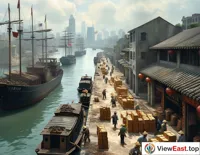
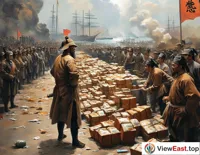

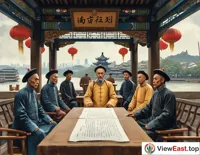
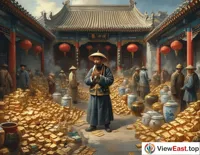
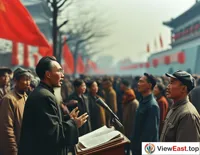
In 19th-century China, the Opium War was not just a military conflict but a historical turning point, marking the transition of China from a feudal society to a modern one. This war profoundly affected China's social structure, political system, and cultural mentality, with impacts that continue to the present day.
I. The Causes of the Opium War
The immediate cause of the Opium War was the opium trade between China and Britain. At the beginning of the 19th century, in order to solve the trade deficit with China, Britain smuggled a large amount of opium into China. The proliferation of opium brought great disasters to Chinese society, not only harming the health and spirit of the people but also leading to a massive outflow of silver, which exacerbated the financial crisis of the Qing government. Lin Zexu's destruction of opium at Humen was an important action of the Chinese government against the opium trade, but it also intensified the contradictions between China and Britain, eventually leading to the outbreak of the Opium War.
II. The Course of the Opium War
In 1840, the British government, under the pretext of protecting trade, sent a fleet to invade China's territorial waters, and the Opium War officially broke out. The British army, with its advanced warships and artillery, moved northward, successively capturing Guangzhou, Xiamen, Dinghai, Zhenhai, and other places, and ultimately forcing the Qing government to sign the Treaty of Nanking. The war was not only a military conflict but also a collision between two civilizations and two systems. The outdated weapons and tactics of the Qing army were no match for the modern British forces.
III. The Impact of the Opium War on Chinese Society and Politics
The defeat of the Opium War forced the Qing government to sign a series of unequal treaties, ceding territory, paying huge amounts of silver, and opening multiple trading ports, severely infringing upon China's sovereignty and interests. The war also exposed the corruption and incompetence of the Qing government, stimulating a strong demand for change in Chinese society. On the one hand, the war promoted the growth of China's foreign trade, and Western technology and ideas began to flow into China, promoting social change; on the other hand, the war also intensified social contradictions in China, triggering a series of resistance struggles and reform movements.